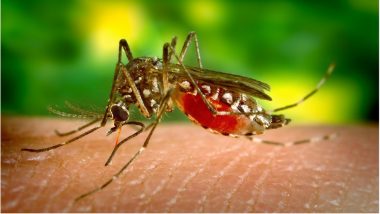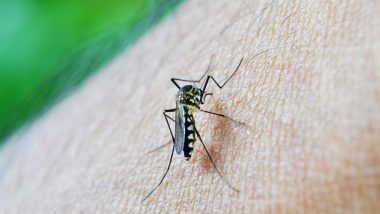Dengue cases have seen an all-time rise in the past few years in India. Every year around 390 million dengue infections are reported from across the world. Dengue fever is a mosquito-borne disease that occurs in tropical and subtropical areas of the world. To raise awareness about this condition, National Dengue Day is observed on May 16. The fever is transmitted by the bite of Aedes mosquito which is infected with dengue virus. Below we discuss the causes, symptoms, diagnosis, treatment and prevention tips against this life-taking disease.
Causes & Risk Factors
When a mosquito bites a person infected with dengue virus, the virus enters the mosquito. When the infected mosquito then bites another person, the virus enters that person’s bloodstream. Being in tropical and subtropical areas increases your risk of exposure to the virus that causes dengue fever. High-risk areas are Southeast Asia, western Pacific islands, Latin America and Caribbean, where the disease is more prevalent. Previous infection with dengue can also increase the risk of having severe symptoms if you’re infected again.
Symptoms
Symptoms usually begin four to six days after the person is infected. These include sudden high fever, severe headaches, pain behind the eyes, severe joint and muscle pain, fatigue and tiredness, skin rash, nausea and vomiting. Sometimes these mild symptoms can be mistaken for those of the flu or another viral infection. However, mild symptoms can quickly develop into a serious problem. These include dengue haemorrhagic fever, a rare complication which is characterised by high fever, damage to lymph and blood vessels, enlargement of the liver and failure of the circulatory system. The symptoms may progress into massive bleeding, shock and death. This is known as dengue shock syndrome (DSS).
Diagnosis
Doctors can diagnose dengue infection with a blood test to check for the virus or antibodies to it. If you’ve fallen sick after travelling to a tropical area, let your healthcare provider know.
Treatment
There are no medications to treat dengue infections. People infected with the virus are asked to consume lots of fluids and take assistance from doctors. If the symptoms begin to worsen after the first 24 hours, visit your doctor immediately.
Prevention
The best prevention method is to avoid getting bit by a mosquito and mosquito breeding in and around the houses. Use mosquito nets or repellents. Wear long-sleeved clothes to prevent exposure of arms and legs. It is important to not allow water to stagnate. The most common places for mosquitoes to breed are plastic containers, buckets, used automobile tyres, pet watering containers and flower pots. If someone in your home gets dengue, be vigilant about efforts to protect yourself and other family members from mosquitoes.
Dengue prevention and control is everyone’s responsibility. The aim of this day is to control the infection through awareness, initiate preventive actions and continue till transmission season is over. Rainy season is soon going to be upon us and dengue is a very common disease in India especially during the rains. Hence, be aware about the hygiene in your surroundings.
(The above story first appeared on LatestLY on May 16, 2018 01:12 PM IST. For more news and updates on politics, world, sports, entertainment and lifestyle, log on to our website latestly.com).













 Quickly
Quickly



















